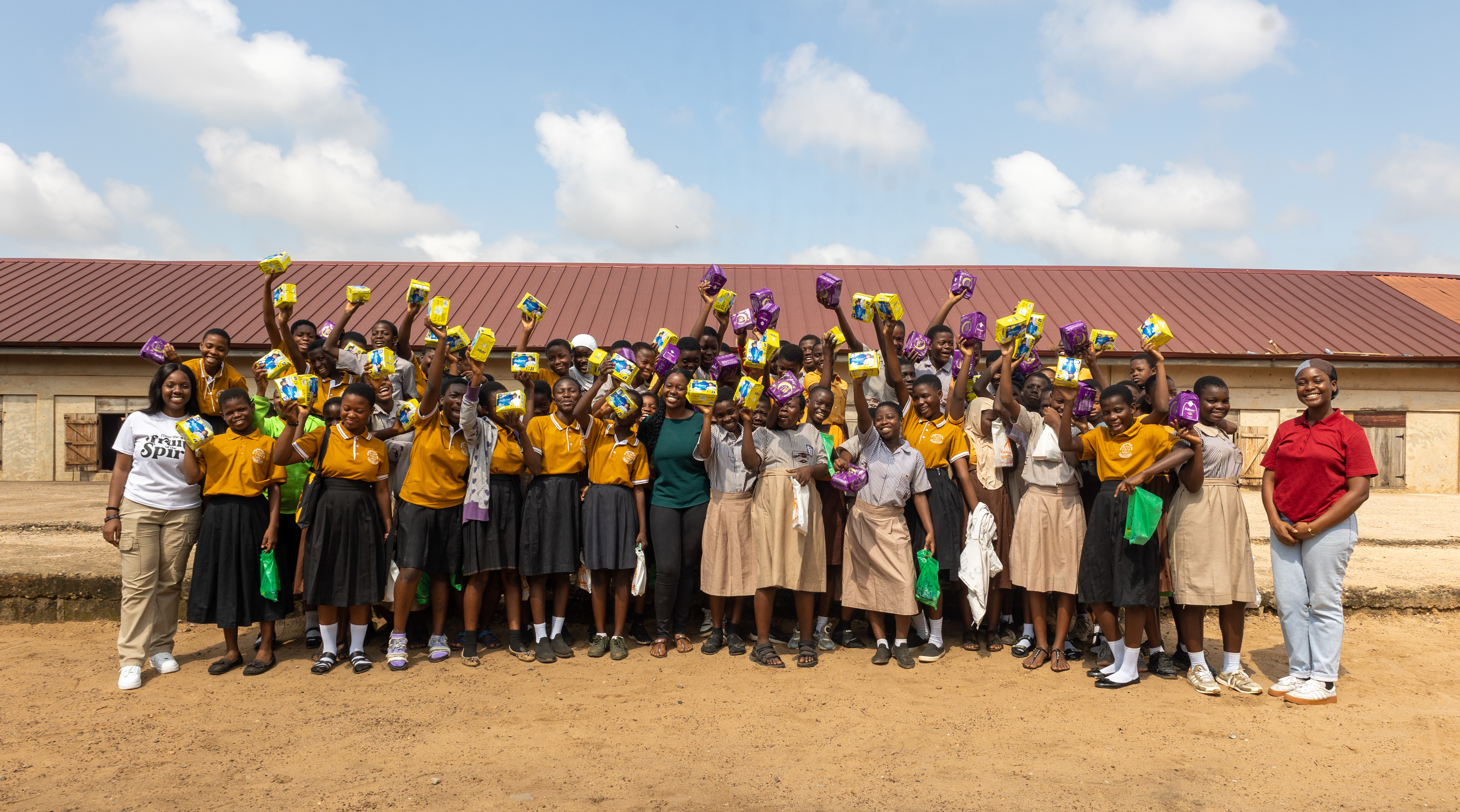A fifth-year medical student, Ama Achiaa Acheampong, has donated sanitary pads to pupils of Oforikrom M/A Junior High School as part of efforts to promote menstrual hygiene among young girls.
The initiative, undertaken under the Millennium Fellowship’s Care360 Project, aimed to educate girls on menstrual health, personal hygiene, and the need to break the stigma surrounding menstruation.
With support from her parents, classmates, and relatives, Ama mobilised resources to purchase and distribute the sanitary pads to the pupils.
“I did this with my friends, my classmates, and my parents. We contributed together to get these for the children, while also teaching them about menstrual health, their cycles, the symptoms they experience, and how to manage and maintain good hygiene,” she said.
Ama explained that her project focuses on menstrual health education as part of the broader Sustainable Development Goal 3 (Good Health and Well-being), which seeks to ensure healthy lives and promote well-being for all.
“I decided to focus on menstrual health because it’s a key part of women’s overall well-being,” she said.
According to her, misconceptions and stereotypes about menstruation persist, making it essential to provide young girls with accurate information to help them understand their bodies better.
“Right now, we are helping the girls understand what their bodies go through during their menstrual cycles. There are a lot of stereotypes about menstruation, and we need to change that by telling them the truth and teaching them what to do. Many girls still don’t know how to manage their periods properly,” she explained.
Ama also called on government agencies, NGOs, and individuals to support menstrual health education in schools.
“I think it’s high time organisations, government, and anyone who feels they can make an impact take up these initiatives. They can adopt schools and teach the girls how to care for themselves during menstruation,” she added.
The Care360 Project forms part of Ama’s commitment to empowering young girls to stay confident, healthy, and informed about their reproductive health.

















